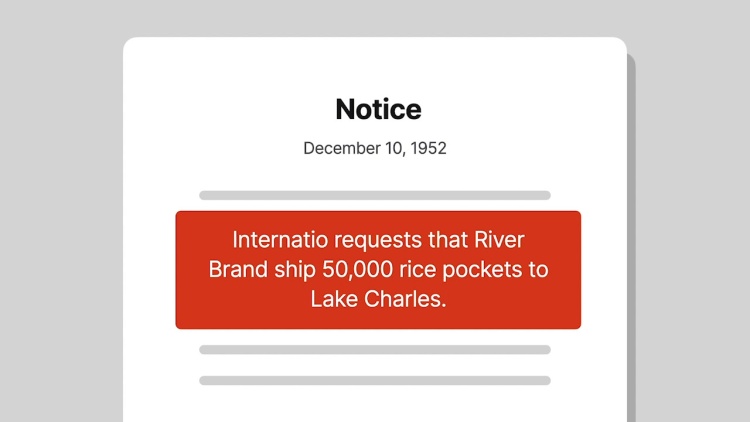Internatio-Rotterdam, Inc. v. River Brand Rice Mills, Inc.
United States Court of Appeals for the Second Circuit
259 F.2d 137 (1958)

- Written by Christine Hilgeman, JD
Facts
River Brand Rice Mills, Inc. (River) (defendant) contracted with Internatio-Rotterdam, Inc. (IRI) (plaintiff) to deliver 95,600 units of rice to ports in Lake Charles and Houston in December 1952. IRI was to provide River with specific shipment instructions for each port two weeks prior to delivery of the rice. While instructions were provided to River for the Lake Charles shipments, and River promptly made those shipments, IRI still had not provided instructions for the Houston shipments as of December 17, 1952. Because December 17 was the last date on which River could receive instructions and complete the shipments within the time frame of the contract (i.e., December 1952), River rescinded the contract for the Houston shipments on December 18, 1952. River, however, continued to make the Lake Charles shipments for which it had received instructions. Around this time, the price of rice had risen well above the contract price. IRI sued River for breach, alleging that IRI’s failure to provide instructions by December 17 did not constitute a breach but merely extended the time for delivery beyond December 31 to two weeks from when the instructions were provided. The United States District Court for the Southern District of New York dismissed the complaint, and IRI appealed.
Rule of Law
Issue
Holding and Reasoning (Hincks, J.)
What to do next…
Here's why 908,000 law students have relied on our case briefs:
- Written by law professors and practitioners, not other law students. 47,100 briefs, keyed to 996 casebooks. Top-notch customer support.
- The right amount of information, includes the facts, issues, rule of law, holding and reasoning, and any concurrences and dissents.
- Access in your classes, works on your mobile and tablet. Massive library of related video lessons and high quality multiple-choice questions.
- Easy to use, uniform format for every case brief. Written in plain English, not in legalese. Our briefs summarize and simplify; they don’t just repeat the court’s language.





